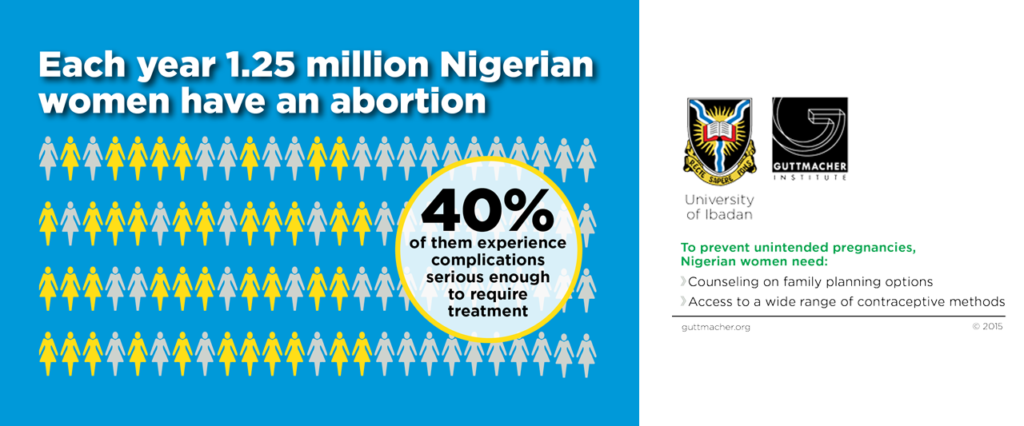Researchers and partners share findings and implications of a national study in Abuja

On November 4, Ipas Nigeria hosted a launch event to share the findings of a national abortion incidence study conducted by the University of Ibadan and the Guttmacher Institute. More than 100 participants from state governments, civil society and provider groups—as well as local, regional and international media outlets—attended the half-day event.
“Disseminating the findings of this study is very important to us,” says Hauwa Shekarau, Ipas Nigeria interim country director and senior policy advisor. “We are pleased to have new evidence about abortion in Nigeria; the last national study was roughly 20 years ago.”
Though permitted only when necessary to save a woman’s life, induced abortion is common in Nigeria, “The incidence of abortion in Nigeria,” concludes. More than a million abortions were performed in the country in 2012, compared with the 610,000 abortions estimated to have occurred in Nigeria in 1996. This increase is due not only to greater population size, but also to an apparent rise in the abortion rate. The estimated abortion rate was 33 abortions per 1,000 women aged 15–49 in 2012. Although this rate is greater than the 1996 rate (23 per 1,000) estimated in a previous study, the most prudent conclusion may be that the abortion rate has increased slightly, as the two rates were calculated using different approaches.
Most of these abortions were clandestine and many were unsafe. Unsafe abortion is a major contributor to Nigeria’s maternal mortality rate, which remains among the highest in the world. Clandestine procedures are often carried out under unsanitary conditions by providers who are not appropriately trained. The resulting complications range from unchecked bleeding to serious infections and even death.
Olutosin Awolude, consultant and lecturer, Department of Obstetrics and Gynaecology, Universtiy of Ibadan, gave a detailed overview of the study findings and methodology for the event participants, along with Dr. Akinrinola Bankole, director of international research at the Guttmacher Institute.
“These findings make clear not only that abortion is common in Nigeria, but that unsafe services are putting women’s health and lives at risk,” said Bankole. “Unwanted pregnancy is the root cause of most abortions. Nigerian women need access to high-quality family planning services to reduce rates of unintended pregnancy and the unsafe abortions that often follow,” he added.
Speaking at the event, Shekarau called for a review of the Nigerian abortion law. “This study indicates that it’s time for the government to put in place a law that permits health-care providers to deliver safe abortion services.”
“We need to look at the law critically. The restrictive law contributes to unsafe abortion because it forces women to seek clandestine abortions from unskilled and untrained quacks. It infringes on women’s and girl’s rights and puts them in harm’s way,” she said.
“The Incidence of Abortion in Nigeria” is available online in International Perspectives on Sexual and Reproductive Health.
Learn more about abortion law and policy in Nigeria in this factsheet.
For more information, contact [email protected]


